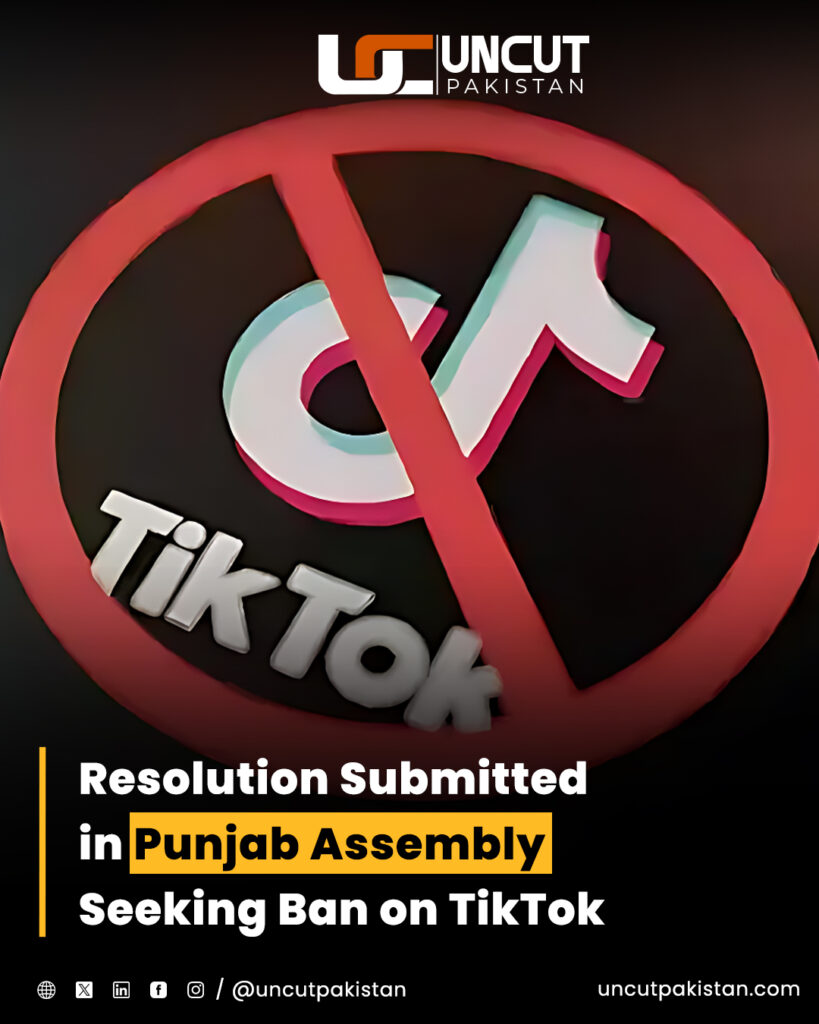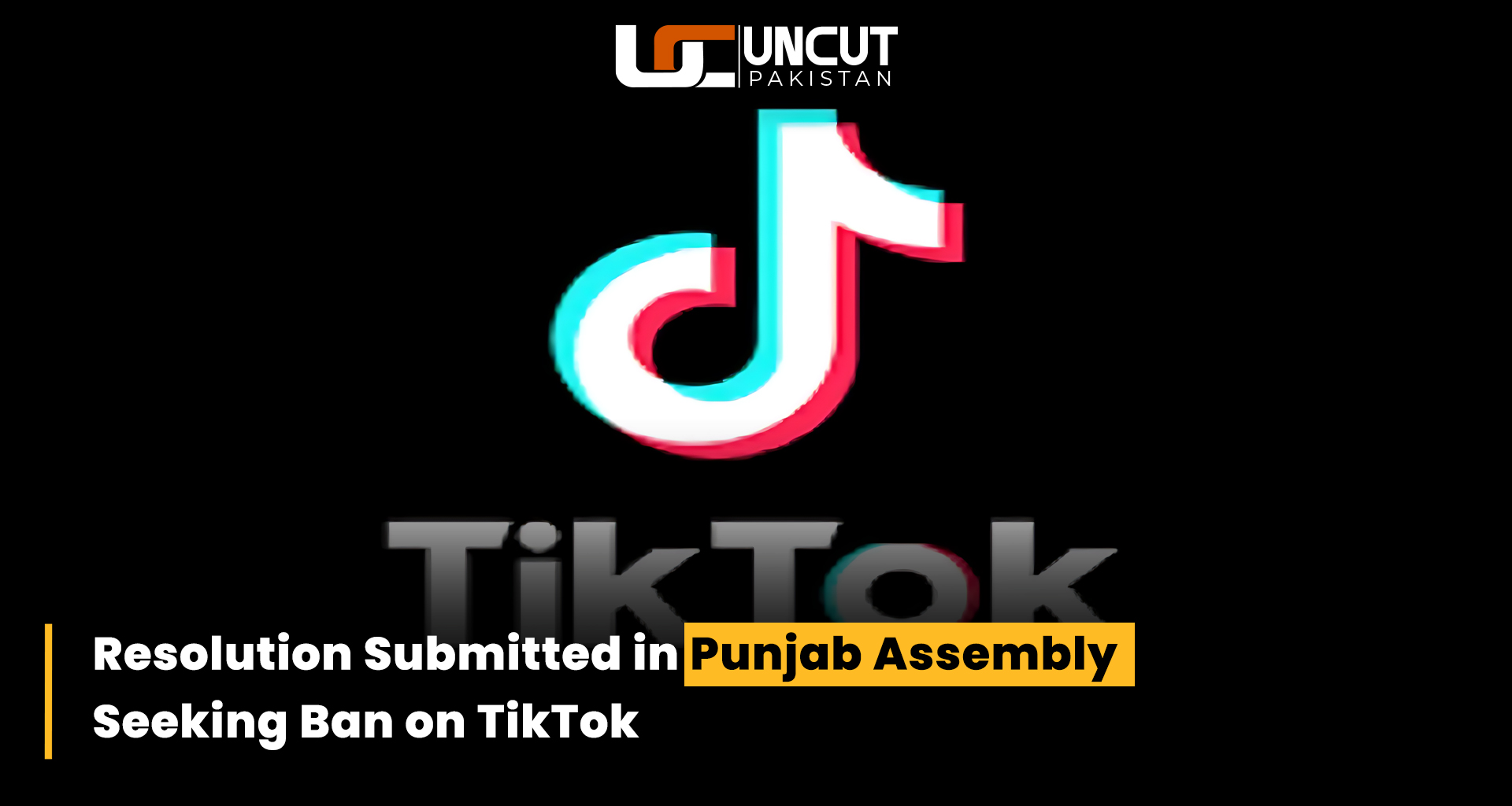Introduction
A fresh controversy has emerged in Pakistan as a resolution was submitted in the Punjab Assembly seeking a complete ban on TikTok, the popular short-video sharing platform owned by Chinese tech giant ByteDance. The move has sparked nationwide debate on issues of morality, youth influence, freedom of expression, and the economic opportunities the app provides to millions of Pakistanis.
Details of the Resolution
The resolution, presented by members of the Punjab Assembly, highlights concerns over the “negative impact of TikTok on the younger generation.” Lawmakers argue that the app promotes indecent content, distracts students from their studies, and contributes to the erosion of cultural and religious values.
The resolution calls upon the federal government and the Pakistan Telecommunication Authority (PTA) to impose a permanent ban on TikTok across the country. Supporters of the resolution insist that the platform has become a source of moral corruption and is harming Pakistani society at its core.

TikTok’s History of Bans in Pakistan
This is not the first time TikTok has faced legal challenges in Pakistan. Since 2020, the app has been banned multiple times by PTA on similar grounds, mostly related to immoral or inappropriate content. However, each time the ban was lifted after assurances from TikTok to implement stricter content moderation policies.
Despite these measures, concerns from conservative circles have persisted, making TikTok a frequent target of political and social criticism.
Impact on Pakistani Users and Economy
TikTok is one of the most downloaded apps in Pakistan, with millions of active users, particularly among the youth. The platform has also created a wave of digital entrepreneurship, where thousands of young Pakistanis earn through sponsored content, brand collaborations, and online visibility.
A permanent ban on TikTok could:
Supporters vs. Critics of the Ban
Conclusion
The resolution in the Punjab Assembly to ban TikTok has reignited debates over digital freedom, morality, and the balance between cultural preservation and technological progress. While the move reflects concerns of conservative lawmakers, it also raises questions about the future of Pakistan’s digital economy and the livelihoods of thousands of content creators.
As the matter progresses, it remains to be seen whether the government will pursue a complete ban or opt for more targeted regulations. For now, TikTok’s fate in Pakistan once again hangs in the balance.

